This Forum will close on Wednesday 27 March, 2024. Please refer to the announcement on the Discussions page for further detail.
Blueberries struggling this year. Please help
Hi there,
We've been tending to three pot planted blueberry bushes in our garden in North London for about 4 years now. They've been fairly robust throughout and have asked us for little more than regular watering and feeding.
Unfortunately this year they look very sickly. The leaves are very pale green or blackening, the bark is covered in black patches with some of the branches barren and they have barely blossomed with the surviving fruits struggling or a shrivelled mess. The middle one which is a different type seems to be fairing a little better but is still struggling.
I asked at a local garden centre who advised me to repot them with fresh ericaceous soil and give them a liquid feed rather than the usual slow release. Its been a more than a month of weekly feeds (as per instructions) and they just seem to be dying. I've attached some photos in the hope that these will make it clearer. Any advice on how to save the little things will be very welcome.
Many thanks!
Nick
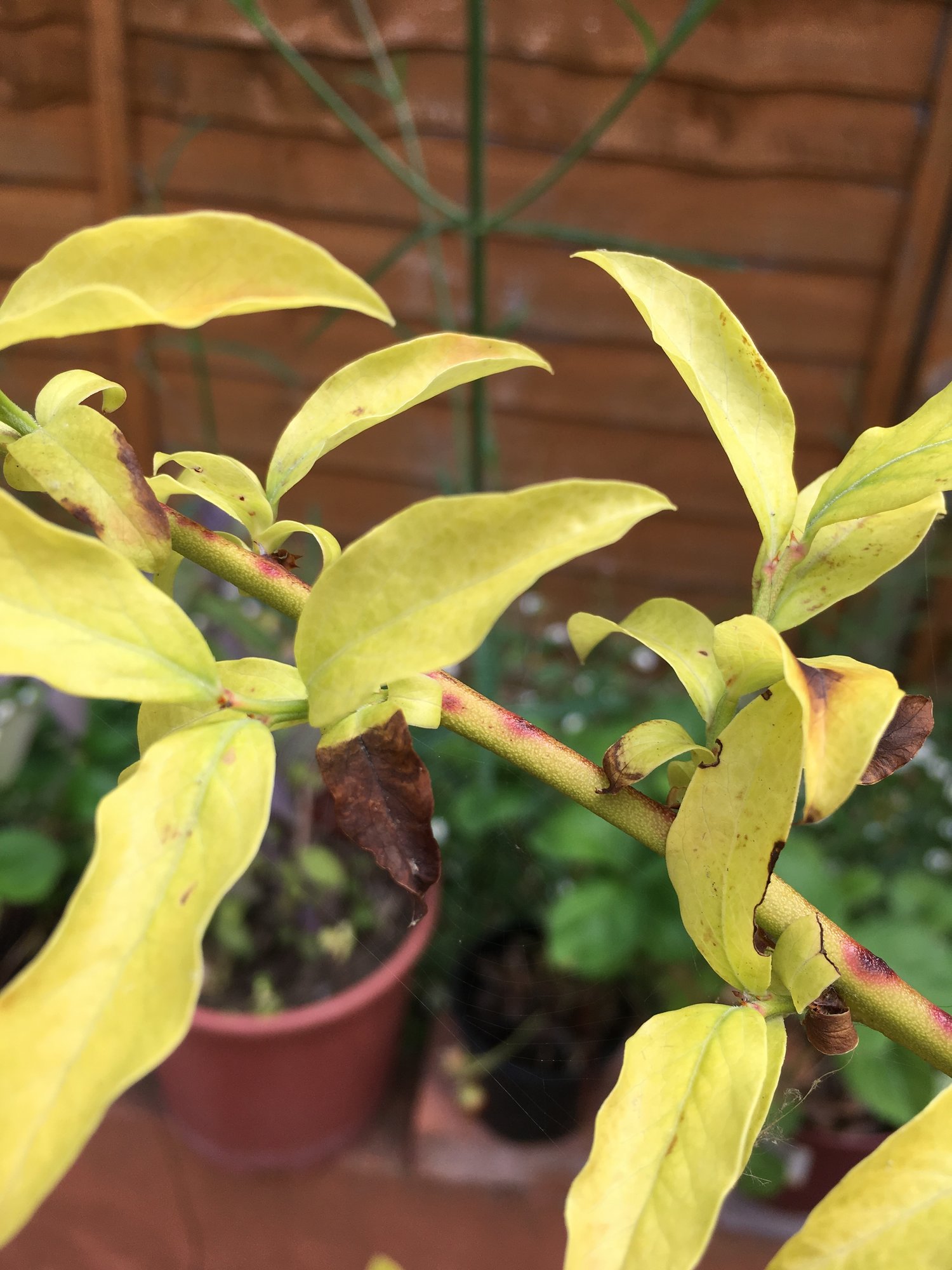
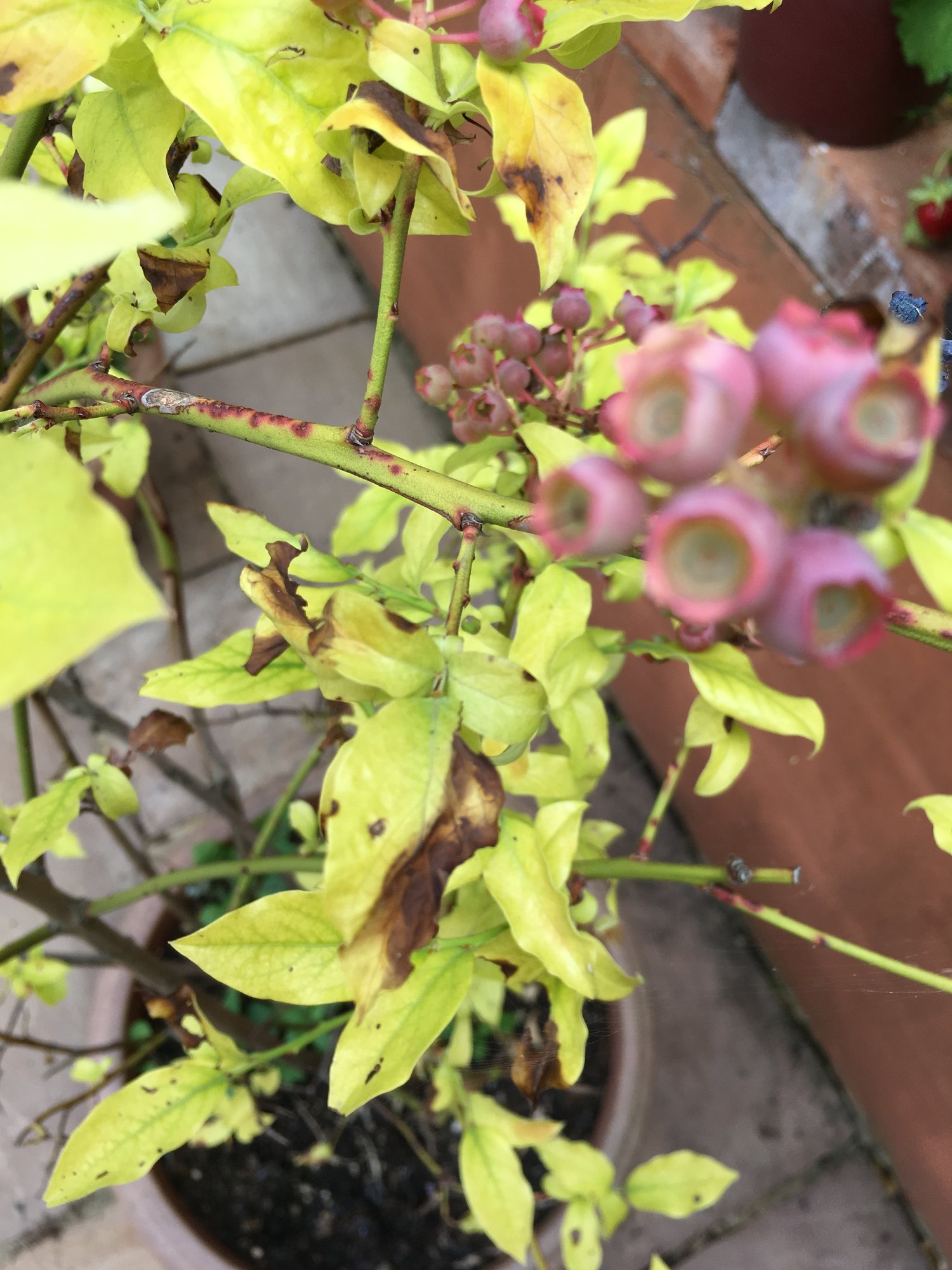
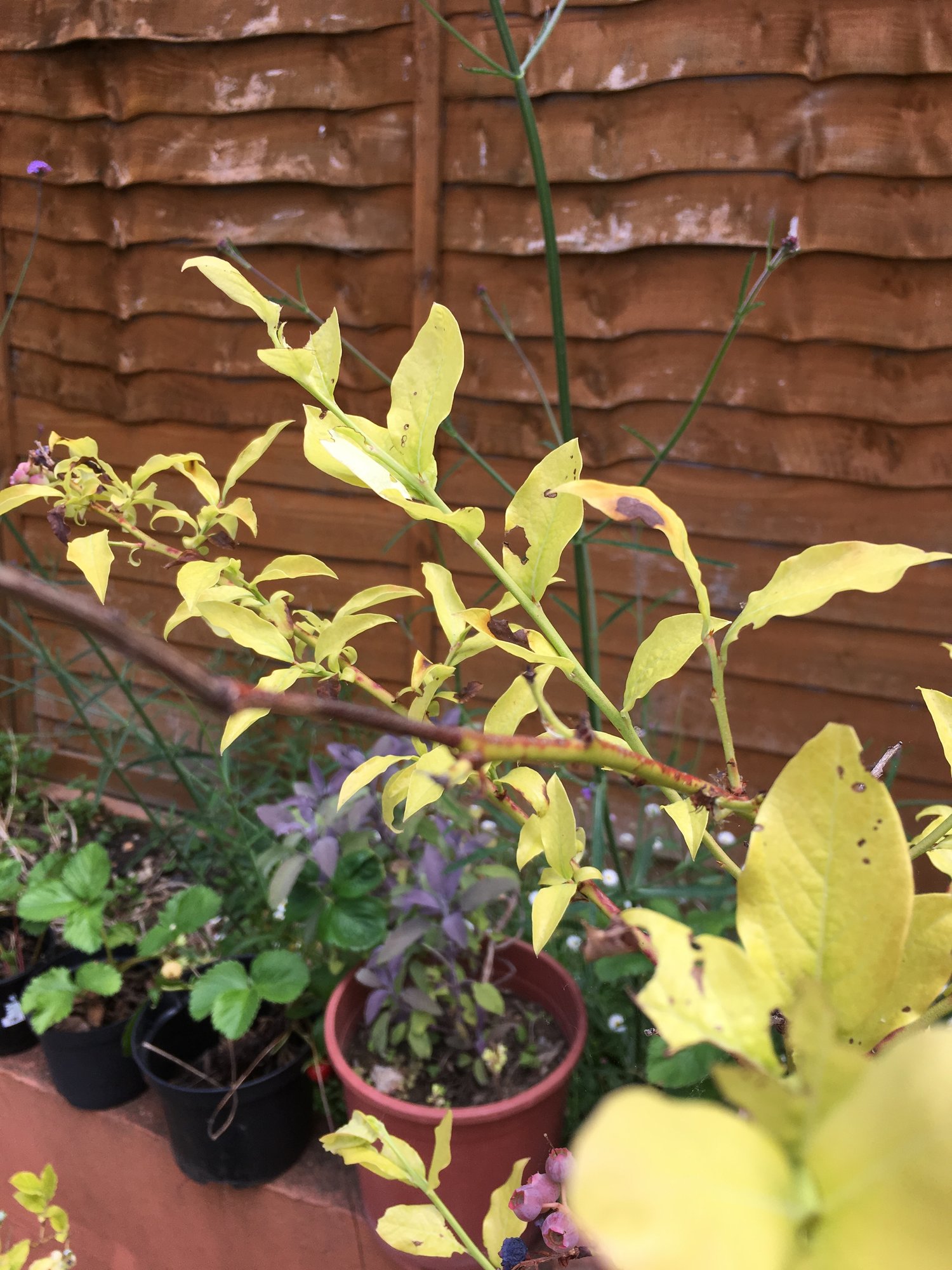
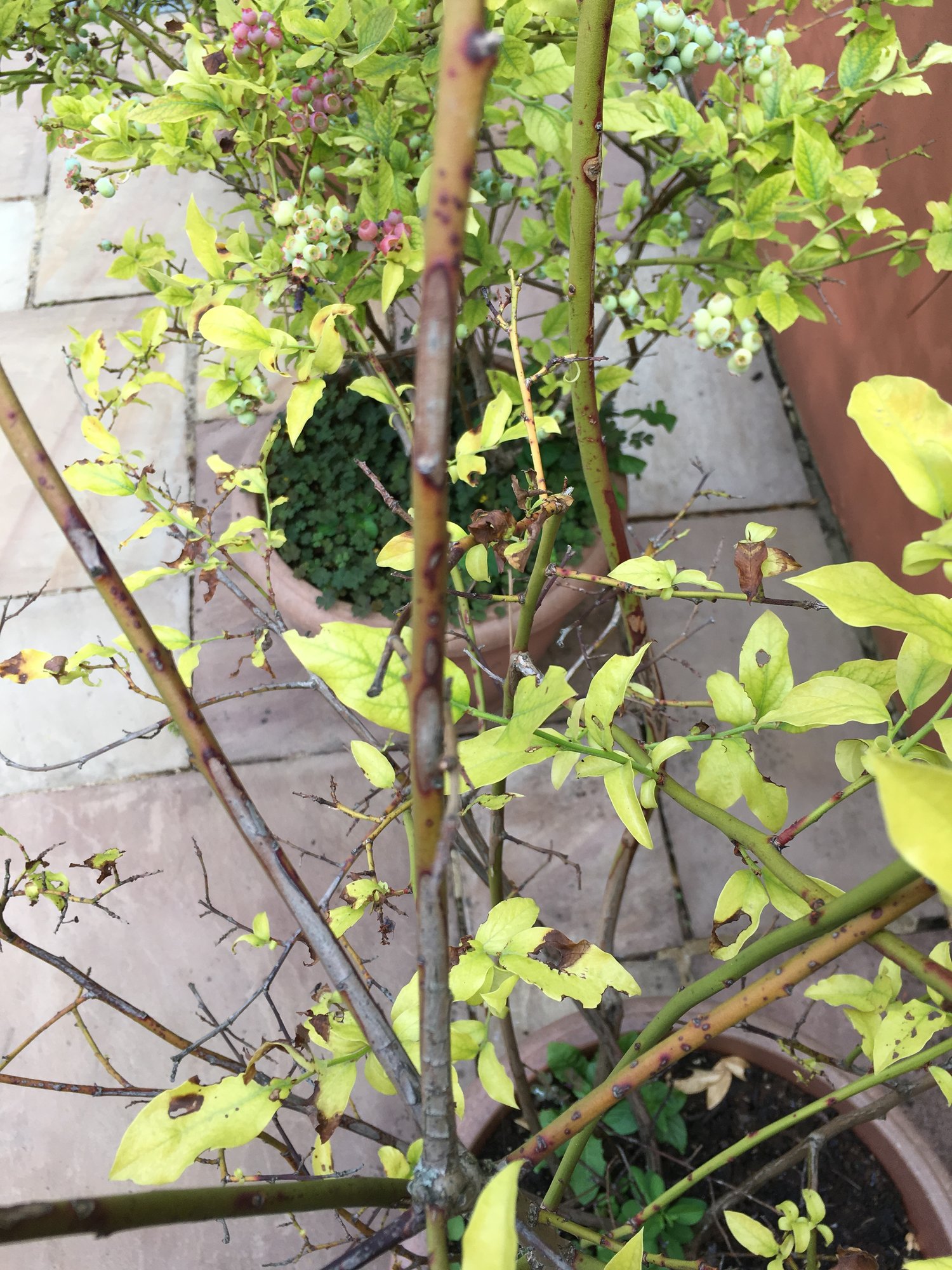
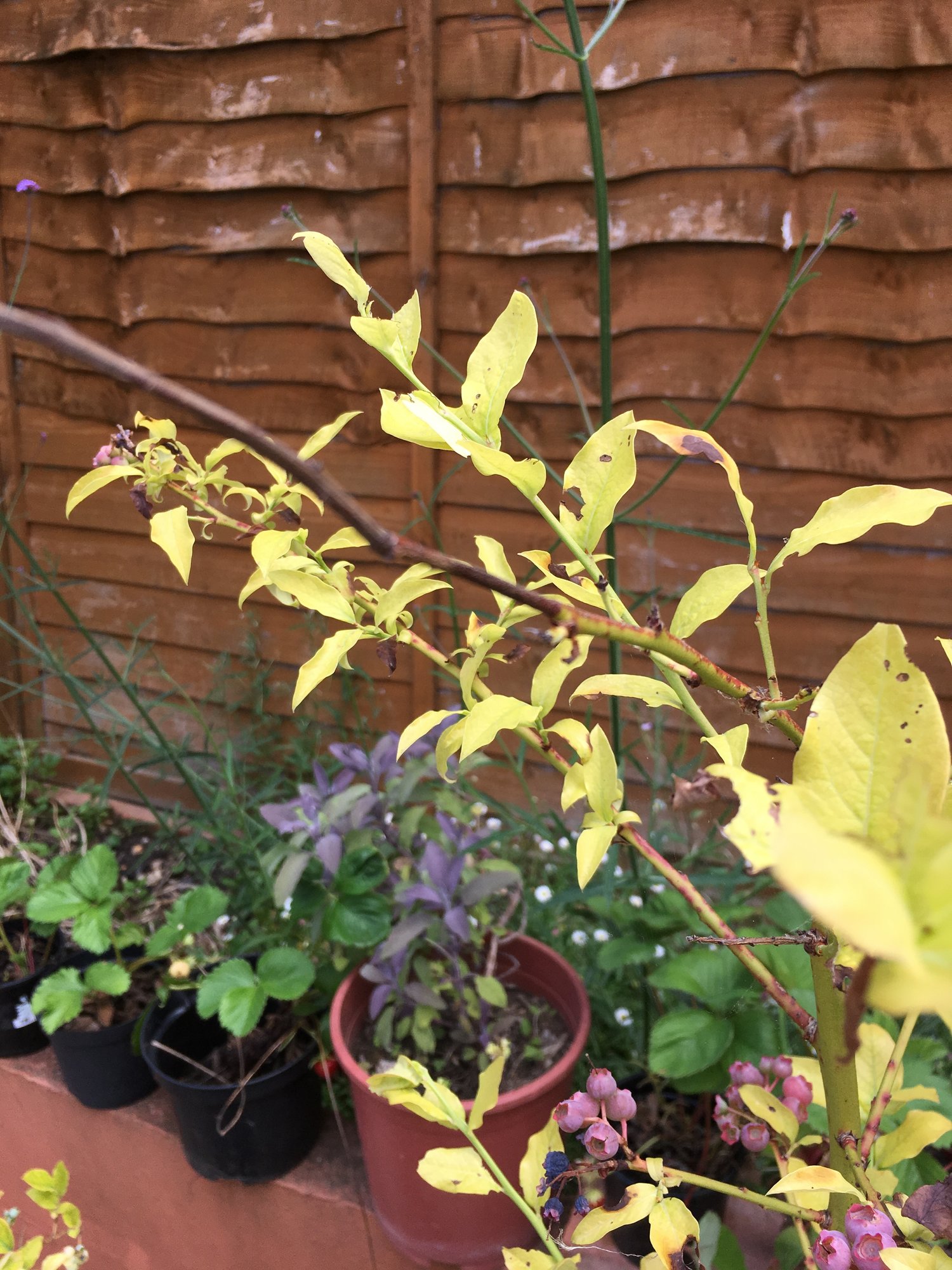

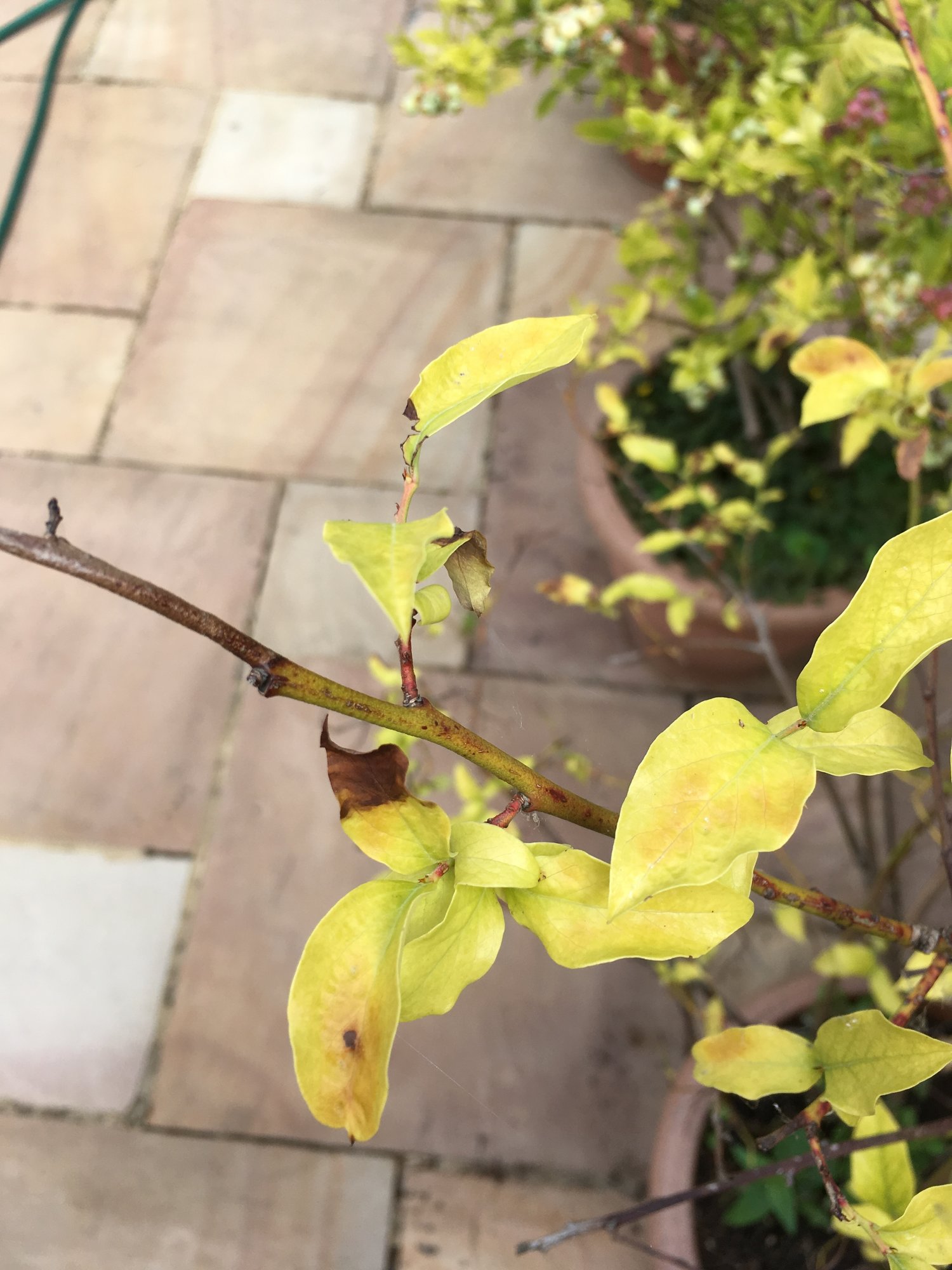
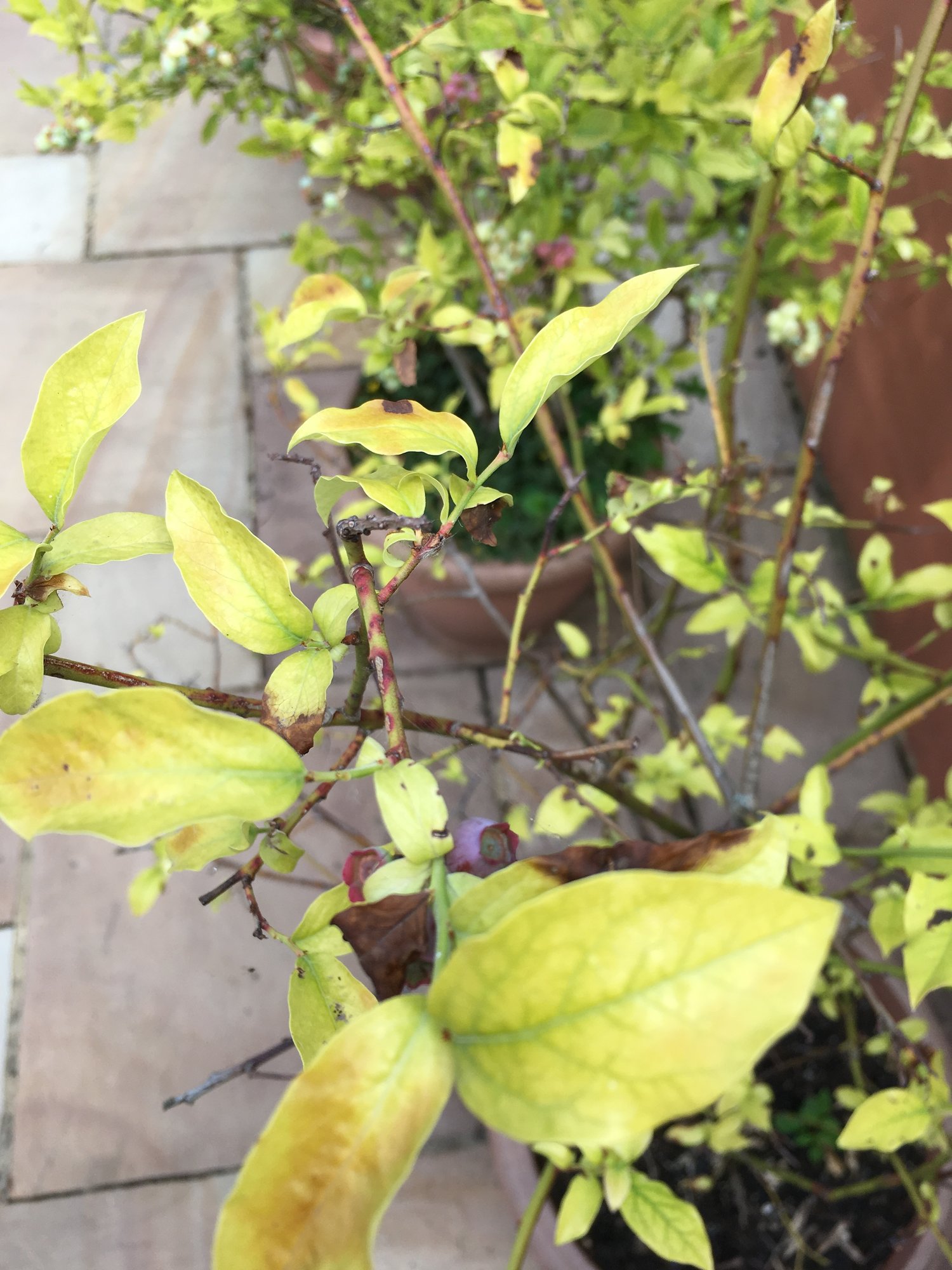
We've been tending to three pot planted blueberry bushes in our garden in North London for about 4 years now. They've been fairly robust throughout and have asked us for little more than regular watering and feeding.
Unfortunately this year they look very sickly. The leaves are very pale green or blackening, the bark is covered in black patches with some of the branches barren and they have barely blossomed with the surviving fruits struggling or a shrivelled mess. The middle one which is a different type seems to be fairing a little better but is still struggling.
I asked at a local garden centre who advised me to repot them with fresh ericaceous soil and give them a liquid feed rather than the usual slow release. Its been a more than a month of weekly feeds (as per instructions) and they just seem to be dying. I've attached some photos in the hope that these will make it clearer. Any advice on how to save the little things will be very welcome.
Many thanks!
Nick








0
Posts
This is my first year with them and so far doing very well with 2 of my 3 bushes laden with fat green berries.
Some things that spring to mind-
Are you using a feed for acid lovers? I use soluble miracle grow for azaleas/rohododendrons/blueberries
Do you use rainwater? - I always use rainwater and keep the compost dampish.
Tap water almost always contains carbonates which makes it hard and unsuitable for blueberries.
My plants are 2 year old plants and in 10L pots and the roots are filling the pots quickly.
The leaves appear yellow with the veins still green - this is called Interveinal Chlorosis and most frequently caused by a deficiency - usually magnesium and/or calcium. There are tonics to correct this. They're usually called Cal-Mag or Magna-Cal or similar.
An alternative that I highly recommend is Seaweed extract, it's a very good tonic for blueberries and other plants - it's not a feed, so you need fertilizer too (but not at the same time). I feed mine every 10 days and give them seaweed extract every 10 days - so they get something every 5 days throughout the growing season. Give them a good soaking so plenty comes out of the bottom of the pot (this helps flush away any unused nutrients from the previous feed), and always use rainwater if possible
Keeping fingers crossed for you
Billericay - Essex
Knowledge is knowing that a tomato is a fruit.
Wisdom is not putting it in a fruit salad.
My thanks for your reply and advice. I have been using Plant Focus (it says it "with seaweed and humic acid" on the pack but I have no idea how much) which was recommended by the garden centre (though this was the only liquid fruit and veg feed they had in stock...). It doesn't specify if it is for acid or alkali loving plants. The feed's website states suitability for 'all plants' but Im now finding this hard to believe.
I live two roads down from a major dual-carriageway so we have been avoiding installing a water-butt as all the roofs here are covered in motor-soot which washes down the drains in heavy rain. Because these are fruiting plants I'm reluctant and have been using tap-water instead (which of course has its own perils). They've have never been upset with the tap water but I can't eliminate it as a factor.
I did read somewhere else that heavy spring rain can cause Interveinal Chlorosis and soil deficiencies as you have suggested the problem may be. I will try to get some pure sea-weed extract or Mag-Cal and also find a way to test soil pH. In previous years we used spent coffee grounds to keep the pH up which the bushes seemed to love, but this year they seem to have lost the will to live regardless of what I feed them.
Any further thoughts and advice are welcome.
Thank you again for your suggestions! I will follow through on them!
Nick
Any fertilizer for acid-lovers is marketed as such as far as I'm aware as they have different properties and using an ordinary fert with your ericaceous compost may be causing some nutrients to lock-up making them unavailable to your plant and causing the deficiency
Any feed for Azaleas will do - e.g. (what I use)
https://smile.amazon.co.uk/Miracle-Gro-Azalea-Camellia-Rhododendron-Soluble/dp/B001880UE4/ref=sr_1_1?ie=UTF8&qid=1529419536&sr=8-1&keywords=miracle+grow+ericaceous
I understand your reasoning re. a water butt.
If you can let tap water stand for 12-24 hours before using it, the chlorine will disappear - which can only help
Billericay - Essex
Knowledge is knowing that a tomato is a fruit.
Wisdom is not putting it in a fruit salad.
You can buy stuff for treating tap water to use in ponds and aquaria that may also help as well as letting it stand for a while, as Pete suggests. The organic gardening catalogue sells a good general seaweed extract food. I've also used azalea food with no ill effects on the blueberries.
“It's still magic even if you know how it's done.”
Thank you for that. Yes I just telephoned Growth Technologies (that make the fertiliser I was sold). They confirmed it is a generic feed and although it shouldn't harm acid lovers, they personally recommend a different product on their line (a Camellia feed) for acid lovers. I think I'll be purchasing some of that Miracle Gro then...
My thanks again.
Nick
I will look into some water treatment as I am indeed in a Thames Water area and when we moved here we had the water tested which came out very very hard. I agree that this could swing based on dry spells and think its best I get on top of that too. Anything to save these little plants. They've been a cheerful fixture for so long in the garden and a favourite with my nieces and nephews I don't want to let them go.
Many thanks again,
Nick
Yes I'm popping by Wilko tomorrow. Will buy a pack of the ericaceous feed and have at them asap. I've already purchased more ericaceous soil and some larger pots just in case the roots are too confined (I may have gone a little too big with the pots - they're 60ltrs - but I've popped draining holes in the bottom so no turning back now...).
With respect to rainwater I'll have to look at the drains a little closer. The rear of the house faces away from the carriageway so maybe that side is less sooty. I still need a solution for summer watering. I read that some people use vinegar to up the pH in tap water but I don't know if this will be enough.
Best,
Nick
You need to remove the the carbonates and other minerals that make tap water hard. Adjusting the pH alone won't do it (there are pH adjusters suitable for plants - usually called pH up and pH down)
There is an alternative way to get suitable water.
I have a reverse osmosis unit that I used to use for my aquarium. This removes something like 98% of everything leaving water with a pH of between 5.5 and 6.0 and no minerals. The unit cost about £40 and if used for making drinking water has to be replaced quite often. I've been using mine on and off for 2-3 yrs now when my butts run dry. Works very well but is it water wasteful. I think it takes 10 gallons of water to make 1 gallon RO water. I use the run-off to top up my fish pond.
But as Bob said previously the roof-run water locally may not sound very nice, but it probably wont bother the plants and a lot of it will form a scum on the surface of your water butt which you can scoop off - of course that assumes we get rain again at some point...
You mention that for 4 years they've been good and only since you used a different feed you've had problems. As I suggested earlier the feed may cause a lock-up of some important nutrients. I think this is the main problem.
I bought my b/berries from Trehane nursery and have been in contact with them since.
I'm trying the r/o approach at the moment (only a brief shower so far this month) and have said I'll let them know how it goes later in the year.
He did comment that he's not heard of any major problems with growers using tap water, but he does recommend rain water and only tap water when there's no alternative
Billericay - Essex
Knowledge is knowing that a tomato is a fruit.
Wisdom is not putting it in a fruit salad.
Thanks for the heads up on the vinegar. I thought as much as its hardness they're not meant to like too and the vinegar will do nothing to the Cal and Mag. I installed an R/O filter for our drinking water (I purchased a drinking water specific system). Didn't think to use this though it might not work for the plants as it passes a remineralising cartridge before the spout. I will see if I can sort something out with the rain-water.
The chlorosis actually didn't start with the feed. The leaves actually sprouted in spring this year with an unhealthy lime green and progressed to get worse. The feed was something I started a month or so ago (but Im certain this made it worse). In previous years the tap water hasn't seemed to bother them but I agree rain water is best for plants wherever possible so Im going to do what I can to alter that.
I repotted them today (with a lot of effort) in some fresh ericaceous compost (went through 80ltrs of the stuff and nearly wasn't enough) in a larger pot for each. Interestingly the root balls where not just dense but also soaked at the bottom. It looked like the pebbles that had been used (we inherited these bushes) at the bottom of the pots for drainage had actually bonded with the roots and soil to form a barrier for the water instead of a drain. I have dislodged these and feathered the bottom and sides of the root ball. Hopefully the moisture levels will balance out now.
Will keep you posted on progress! Buying the feed tomorrow - fingers crossed for a speedy recovery!
Many thanks.
Nick